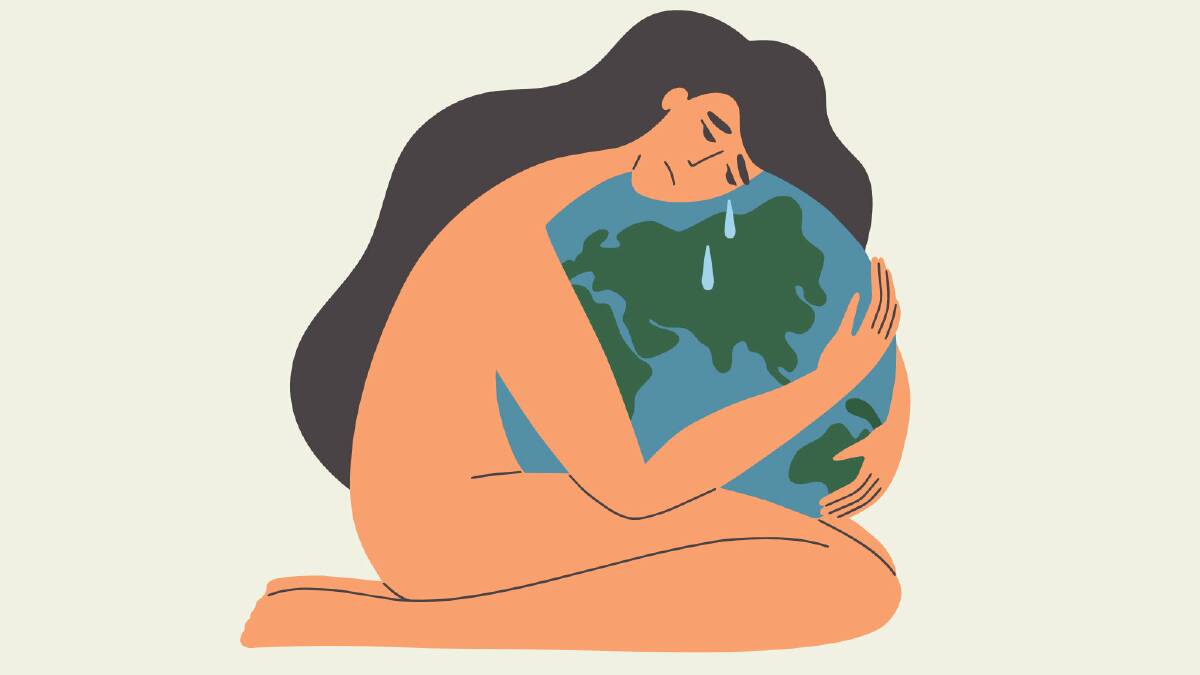
If humanity is to survive the vast and growing threats it faces, women must assume the leadership of government, business, religion and social institutions around the world.
Female leadership is a required solution to the ten catastrophic risks which now confront the whole of our civilisation.
As a rule, women don't start wars, mine coal or oil, destroy landscapes and forests, pollute air and oceans or poison their children - though they may benefit from those male actions.
They tend to think more about the longer term than do men, and to consider the future needs of their children and grandchildren more fully.
They tend to seek peaceful and constructive solutions to problems rather than warring over differences in values and beliefs, or over resources.
Since the time our species first differentiated its gender roles, over a million years ago, pragmatic male thought has largely driven our remarkable ascent, our great technological achievements up to the start of the present century.
But men are also risk-takers - and often ignore or make light of the risks created by the use, misuse or overuse of these technologies. Furthermore, in the hot, overcrowded, resource-depleted, poisoned world of the present and immediate future, competitive male attitudes are also our potential downfall, especially if they lead to wars and mass destruction.
In a world beset by catastrophic risks such as global ecological collapse, nuclear weapons, climate change, universal chemical poisoning, resource scarcity, food insecurity, overpopulation, pandemic disease, deadly new technologies and self-delusion, a fresh human perspective is needed - one which accentuates peaceful co-operation, caring, repair, healing and restoration.
The most striking example of global female leadership is the decision by women everywhere to have fewer babies. This has brought the birth rate down from five babies per woman in the mid-1960s to 2.4 babies in the early 2020s - and it is still falling, in every continent and in almost every country.

It is a responsibility the female of our species has undertaken because she instinctually understands the dangers and costs of uncontrolled family and population growth. Not swayed by the selfish arguments of economics, nationalism, religion, paternalism or social pressure, women have willingly had fewer children in order that those they do bear may live better - or even live at all.
Women are also peacemakers. History offers few, if any, examples of wars of aggression waged by female leaders.
All of the great wars of recent centuries, on the other hand, were started either by male monarchs, dictators or by male-dominated governments. A fine search of history may unearth a few cases of military aggression by women - but almost always in response to oppression by a hostile male power. While women do not lack military skill, unlike males they appear to grasp that confrontation may often be resolved by means other than the mass sacrifice of both soldiers and civilians.
In recent wars, in Africa especially, men have played the role of warriors and women that of peacemakers, helping to resolve by mutual agreement the issues that bred the conflict in the first place.
In a world where conflict over declining resources of land, water, food, minerals, timber, fish and other vital necessities of life is increasingly common, male leadership is far more likely to result in mass destruction and death than female leadership. Males in most societies are taught from youth to compete for what they want, and if competition doesn't work, then to fight for it, often to the death. Sporting role models, gang behaviour, worship of military virtues and imposed patriarchal values cement the process.
READ MORE:
This masculine ideal is so firmly imprinted on society and on young males as to make questioning it tantamount to heresy - and most men fear to do so. Indeed, the realisation that traditional male values are redundant has given rise to anxiety and confusion in many males over the likely loss of their "traditional" roles of warrior and protector.
Females learn or are taught to achieve their goals by other means, generally peaceful, diplomatic, negotiatory and cooperative. It follows that female leadership is better suited to the conditions of the 21st century than it perhaps was to previous centuries - and male leadership less so. Thus, majority female rule can reduce the chances of civilisational collapse, or even human extinction, by war.
Women already tend to lead international organisations concerned with human health and wellbeing, with peace, with children and their future - whereas men tend to dominate organisations that pollute, manufacture poisons or weapons, plough up landscapes, pillage the oceans and destroy the climate.
There are very few female leaders of the $7 trillion fossil fuels/petrochemicals sector, for example, and the male groupthink in that industry plainly values short-term profit above the safety and survival of humanity.
Petrochemicals kill 13 million people every year and the toll is rising with climate change and the universal spread of poisons. In this case, a male-led industry prizes profit above human life on the largest scale ever to occur in history.
The issue of whether women should lead humanity in the 21st century is thus not a question of gender equality or politics. It is not about feminism.
It is, quite simply, a foundational rule for human survival at the very time we face a major threat to our existence arising from our own behaviours.
It is now a matter of choosing the kind of leadership which can best get us through the most dangerous era in all of human history. This is the age when women will step forward and lead us to a safer, better future.
- Julian Cribb AM is an Australian science writer and the author of several books on the human existential crisis.

